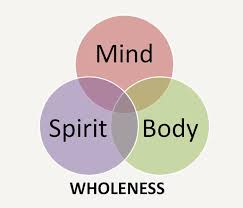HAVE YOU EVER NOT had a prayer answered? At least not the
way you expected or wanted? Did you get frustrated with God for that? Mad at
Him, maybe? I mean, like, really mad.
First, we need to understand that
God always answers prayers. Always. Like any parent, or person, the answer
could come in the form of “Yes, you can
absolutely do that and I’ll make it happen.” Or it could be a flat out “No.” Or
it might be “Okay, but not yet.”
When prayers don’t get answered the
way we hoped or think they should have, maybe the first thing we need to do is some
self-inspection. Take an honest look at our lives, our attitudes, and our
behavior to uncover anything that might be hindering our prayers. We need to
know what it takes to be a really effective prayer warrior. Dr. Charles Stanley
gives us a great place to start in his Life
Principles Bible.
In reference to James 5:15 and 16, Dr. Stanley gives the “Principles for Effective Intercession.” There are six of them.
While Dr. Stanley presents them as statements, I’ll pose them as questions.
1. How’s your heart?
Why does he
start there, do you think? Because your heart gives the condition of your soul
and mind. Do some self-examining—is your heart vessel overflowing with love,
compassion, and forgiveness (the mind and heart of Christ), or does it have the
mold of bitterness, resentment, and anger growing in it? When you’re praying
for someone, it is difficult to feel anything negative toward him. But God
looks at the heart, and I think He’s going to have a difficult time answering
your prayers if He sees a heart polluted by negative emotions.
2. Are you recognizing you’re a link
between someone’s need and an omnipotent God?
When you pray,
you’re asking God to reveal Himself and His power—to the other person and to
you. Sometimes when we pray, we get right to the person’s wishes, rather than
going deeper and asking God to meet that person’s true need. We don’t always
know what that is, but He always knows what it is. We need to make sure we have
our priorities straight when we’re praying, to be the best prayer warrior we
can be!
3. When you recognize and realize the
person’s need, are you identifying
with it?
Certainly, if we
have never experienced the kind of pain—emotional or physical—that a person is
going through, it may be difficult for us to exude or feel the depths of
compassion we need to feel in order to be the best intercessors for them that we
can be. So how do we do that? We first ask God to have the mind and heart of
Jesus toward that person, to see and feel what He sees and feels for them. Only
then can our prayers take on the depth they need to.
4. Are you considering God’s highest good for that
person?
While we might
not know exactly what God’s intentions are for this, we can be praying for
it—to be in agreement with what God wants to have come to pass. Dr. Stanley
says, “Ultimately, God’s highest good is wholeness. Wholeness includes vibrancy
and life in every domain; spirit, mind, body, emotions, relationships, and
finances.” As the Apostle John wrote in his third letter, “Beloved, I pray that
you may prosper in all things and be in health, just as your soul prospers.” I
think that pretty much covers all areas of life.
5. Do you need to go beyond just praying
for that person?
Perhaps you do, if you’re able. Like Jesus, we need to have compassion and demonstrate it, by feeding, touching, providing for someone’s needs. While you’re praying, ask God how you can also be His hands and feet to this person. We need to follow our Savior’s example. We need to demonstrate our faith in action. James has some scathing words for those of us who pray and don’t do.
6. Do you persevere or give up easily in
your prayers?
We need to be in
it for the long haul, even if we don’t see immediate results. When you spend a
lot of time in prayer for someone, “the more rightly our hearts will be knit to
him or her,” Dr. Stanley points out. Praying for someone binds you and that
person together with spiritual and emotional ties. As Dr. Stanley points out,
that kind of bond is an eternal one!
In a nutshell,
when you prepare yourself to intercede for someone in prayer—
1. Do a heart
check.
2. Remember to
whom you’re praying and what He’s capable of. (Do not limit His abilities by
your human ones.)
4. Focus on the
person’s greatest need.
5. Provide for the
person’s physical need, if there is one.
6. Do not give
up easily or quickly. Persevere!!
And always
remember that “The heartfelt and persistent prayer of a righteous man
(believer) can accomplish much [when put into action and made effective by God—it
is dynamic and can have tremendous power].” Amplified Bible
This week I’ll
be traveling to Southern California again, although our car won't look quite like the one int his picture! This time for the first Southern California Christian
Writers Conference. It’ll be an exciting three days of gathering with some of
the writing and publishing industries’ best. (It doesn’t hurt that it’s in
Southern California, either. For me, it’s always good to get back to the land
of my birth. J) We’ll also be visiting and fellowshipping
with relatives, and friends who are spiritual family. So it will be a time of
learning and refreshment for the mind and spirit! (Once again, I’ll be looking
for God and expecting Him to show up!) And if you’re up for adding me to your
intercessory prayers this week, I wouldn’t mind a little request that I might
be able to stick my toes in the Pacific Ocean, if only for just a brief plunge!
Until next week.
Blessings,
Andrea
May you prosper in all things and be in health, just as your soul
prospers (3 John 2).









No comments:
Post a Comment